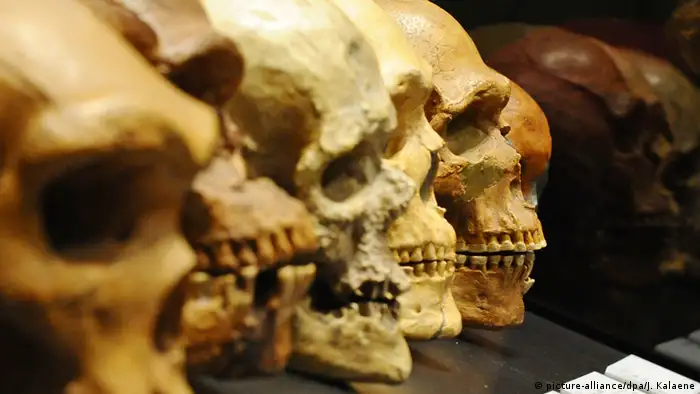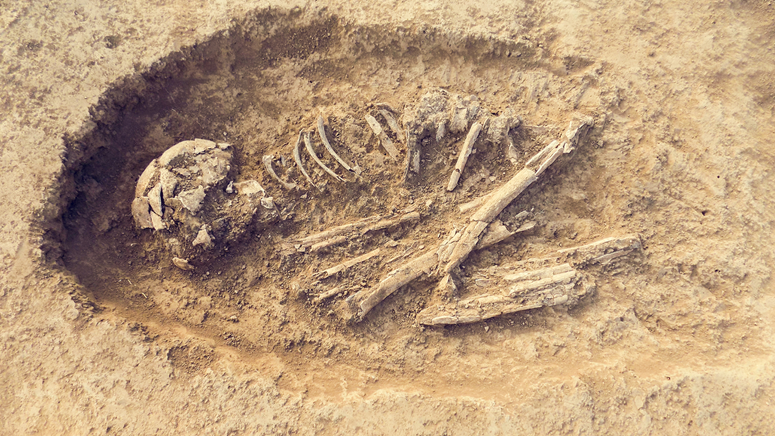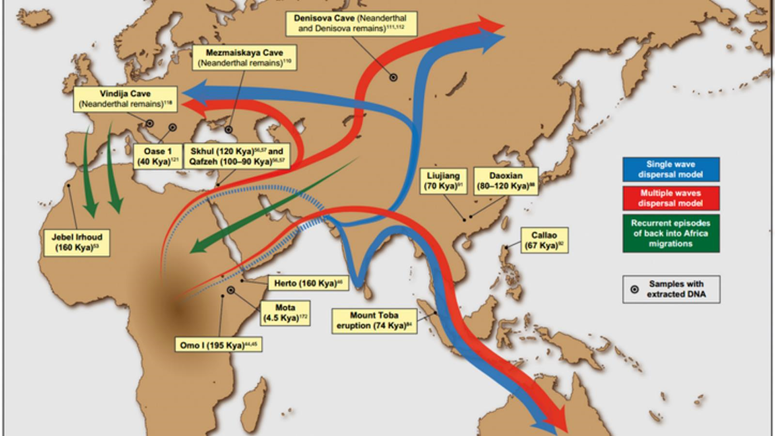?Do humans descend from Europe

Skulls of different races of humans
Scientists have found new fossils of a creature that may be one of the oldest members of the human race ever found. Scientists previously believed that the human-like strain appeared in Africa, but new fossils may refute this theory.
Fossils of a monkey-like creature that lived on earth 7.2 million years ago, found in Greece and Bulgaria, may change our knowledge of human origins, as they cast doubt on the theory that the ancestor that gave rise to the human race appeared in Africa. Scientists said on Monday (May 22, 2017) that the creature, identified by a bone from the lower jaw and a single tooth, may be the oldest member of the human race that began after an evolutionary split from the lineage that gave rise to chimpanzees. The animal closest to man

The jaw bone, which includes teeth, was unveiled in 1944 in the Greek capital, Athens. The tooth was found in south-central Bulgaria in 2009. Researchers examined the fossil using sophisticated new methods, including CT scans, and determined its age by determining the age of the sedimentary rocks in which it was found.
Scientists also found traces of evolution in the root of the tooth that included evidence of human traits not found in chimpanzees and their ancestors, making the creature - known as Grecopithecus - part of a lineage known as hominins. Until now, the oldest human-like creature remains the Chadian Sahel man, who lived between six and seven million years ago in Chad.

Scientists have long agreed that hominins appeared in Africa. The researchers said that the eastern Mediterranean may have contributed to the emergence of the human lineage, given the fossils found in the Balkans. But the researchers said the new findings do not cast any doubt that modern humans (Homo sapiens) first appeared in Africa about 200,000 years ago and then migrated to other parts of the world.

"Our species evolved in Africa. But our lineage probably did not," said Madeleine Baume of the University of Tübingen in Germany, adding that the findings "may completely change our understanding of the origin of humans or hominins." The new findings were published in the scientific journal PLOS ONE.
Source: websites

